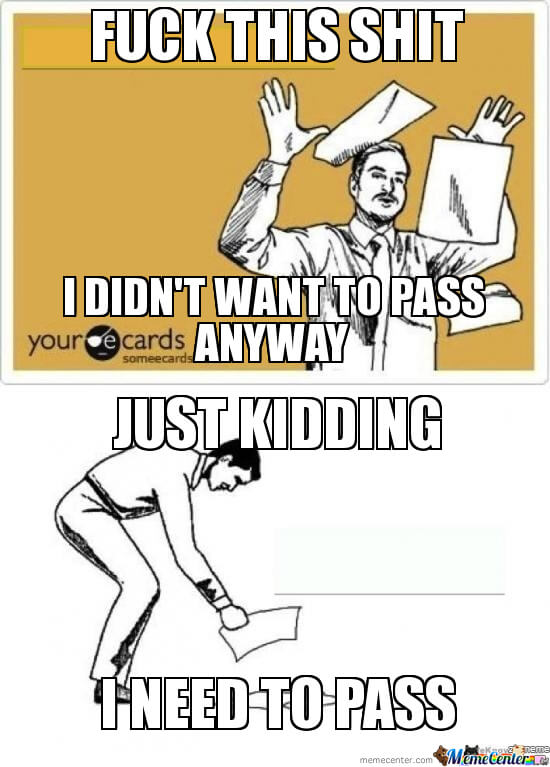
Long-ignored readings composed an anthem of anguish when a study guide informed me that my anthropology final would be largely based on the textbook. A dangerous voyage through the 350-page book encompassed the night before the exam. Finally at midnight, 15 pages separated me from the end of the final chapter (and my pillow). Wait, what did I just read? In fact, what was on the last ten pages?
We’ve all heard the classic warning,: “The exam will be based on lectures AND the reading.” While a lot of the time professors are bluffing to get you to buy their book, some actually mean business. Rather than missing half the questions, here are eight ways to actually remember what the hell you just read.
1. The Early Bird Gets the “A”

(via tumblr.com)
Let’s be honest. Most of us don’t keep up with the readings as prescribed by the syllabus. While this is fine (you deserve to have a life), you should crack open your book long before the exam. Starting earlier gives you more time to digest the information and saves you from stress down the line. A quick skim through the chapters as a review certainly beats attempting to navigate hundreds of pages of information the night before a test.
2. Highlight Without Creating Modern Art

(via funny-pictures-blog.com)
Highlighting serves as a great way to acknowledge key facts and main ideas. Just don’t overdo it. Before you swipe your Sharpie, make sure you’re actually pointing out something important. Your highlights won’t help you skim if the entire page is a neon yellow shade.
3. What Happened in your Own Words?

(via goodreads.com)
Sometimes highlighting just isn’t enough. Take the time at the end of each paragraph to summarize the main point. Make a quick note in the margin or in a notebook if you’re a real overachiever. It doesn’t have to be boring. Feel free to draw a picture or add a joke (or an expletive or two) as long as you’ll be able to understand it later on.
4. Flashcards: Gotta Collect Them All

(via giphy.com)
Those big textbooks you spent your summer paycheck on often lack great organization. Don’t expect vocabulary words to be bolded and highlighted like high school. You’ll be lucky to even find a list of key terms. When you think a term could show up on an exam, write it down on an index card. You’ll retain information through the act of writing and you’ll have a quick point of reference for last minute studying.
5. Paint a Picture: It’ll Last Longer

(via giphy.com)
You may find information easier to remember if you attempt to visualize material rather than merely reading it. How Stuff Works urges its readers to place themselves on battlefields when studying history or act the part of a small farmer when learning about exports. Ask yourself what it would be like to be in various situations. With a little imagination, you gain a much more in-depth look than being able to recite facts. Sorry math majors, this probably won’t work for you (unless you have sick fantasies about quadratic equations).
6. Read Out Loud

(via giphy.com)
This one will piss off your roommates. Psychology Today reports that studying aloud helps you retain more information because it creates a distinctive memory. Because you’re so used to reading silently, the rare instances that you audibly study will stick out in your brain. Use this method to remember the most important parts of the reading.
7. Give Yourself Homework

(via goodreads.com)
Hear me out before you laugh and switch back to Facebook. Many textbooks have extremely useful comprehension questions and activities at the end of the chapter that professors don’t often assign. Even though it’s hard to imagine completing extra work when you already have so much on your plate, take five minutes to answer a few questions. They’re designed to ensure that you understood what you read. You pay for the material anyway; you might as well use it.
8. Take a Breather

(via memecenter.com)
I know, I’m being controversial again but occasional procrastination can actually be productive. After you read a large chunk of material, take the time to put the book down and have a break. Grab a snack or have a stroll around campus. When you come back to reality, you’ll feel refreshed and more productive. See how much information you can recollect. If you can’t remember much, try a new method.
(main images via flickr.com and giphy.com)



















